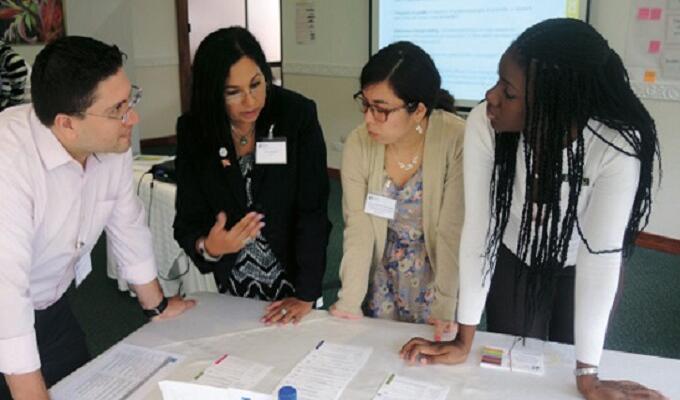

Quantifying trade and investment support institutions’ impact on trade performance and GDP
Trade and investment support institutions (TISIs) such as chambers of commerce, business associations and export promotion agencies play a critical role in enabling businesses to access the information and networks they need in order to succeed in international markets. For smaller companies, especially in developing countries, building expansive in-house capacity on trade-related matters is unfeasible, making TISIs that much more important. Nevertheless, TISIs around the world face increasing demands from their stakeholders, especially cash-strapped governments, to demonstrate that they are providing value for money.
For the kinds of work TISIs do, precisely quantifying the effects of their support to business clients is a challenge, exacerbated by the difficulty of attributing each of the different services they provide to particular impacts in terms of increased trade and investment.
In addition to complicating their efforts to justify their stakeholders’ investments and fees, these attribution issues are part of a more fundamental challenge for TISIs: the ability to understand the impact their various services generate is a prerequisite for improving resource allocation and shaping their service portfolios. Recognizing these challenges, the network of European Trade Promotion Organizations (ETPO) asked ITC to coordinate an impact study to help them demonstrate the value they deliver.
ITC was well placed to answer the call, having for years worked with TISIs in developing and transition economies to support them in assessing, improving, and measuring their effectiveness and resource efficiency. The three-step process is dubbed ‘AIM for Results’.
The responseITC invited a team of economists from the University of Geneva to conduct the study. The study team used data from three separate trade promotion organization (TPO) surveys, two conducted by the World Bank in 2005 and 2010 and a 2014 survey conducted by ITC in partnership with members of the ETPO network. In total, the database covered 94 countries with a special focus on 14 European TPOs.
The team developed an econometric methodology to compare different TPOs and measure the impact of changes in export promotion budgets on exports and GDP per capita. It also identified the TPO characteristics – whether governance, activities, funding level or funding source – that lead to the highest returns.
The resultsThe resulting report, Investing in Trade Promotion Generates Revenue, provided powerful evidence about how funding for TPOs can increase exports and GDP.
The study estimated that each additional dollar spent on helping companies to develop and improve their exports can generate $87 worth of additional exports and a $384 boost to GDP. It broke new ground in academic literature on the topic by showing that export promotion can have positive spinoffs in terms of higher productivity, even in non-exporting sectors.
In addition, the study showed that the managerial and operational practices of TPOs matter for countries’ exports as well as their broader economic performance. For instance, practices such as having private-sector representation on TPO boards; charging fees for services; concentrating on a limited number of sectors and target markets; and focusing on established exporters tend to be associated with higher returns both in terms of exports and GDP. The results also showed that investing in country branding and small and medium-sized enterprises (SMEs) can help drive more rapid GDP growth.
Walter Koren, chief executive officer of Advantage Austria, the country’s trade promotion agency, said the study ‘supports and strengthens our strong belief that trade promotion organizations provide a very high return on investment, help to develop a national economy and do contribute significantly to GDP growth.’ Maroc Export, Morocco’s trade promotion agency, has asked ITC to conduct a similar study looking at its overall impact on Morocco’s exports as well as at how different export promotion programmes affect export results.
The futureThe Investing in Trade Promotion Generates Revenue report will be used as a reference to encourage further research. ITC is committed to carrying out similar impact studies in other regions and to working with independent research organizations to develop and apply rigorous methodologies to measure the value created by trade and investment promotion organizations. The results of those studies will shed light on policies and practices that agencies could put in place to maximize their impact.
By continuing to collaborate with the research community on impact measurement, ITC aims to enhance the impact of its work to strengthen trade and investment promotion organizations. This in turn bolsters the extent to which these critical TISIs are able to contribute to SME trade success, and through it to broad-based growth and job creation.



